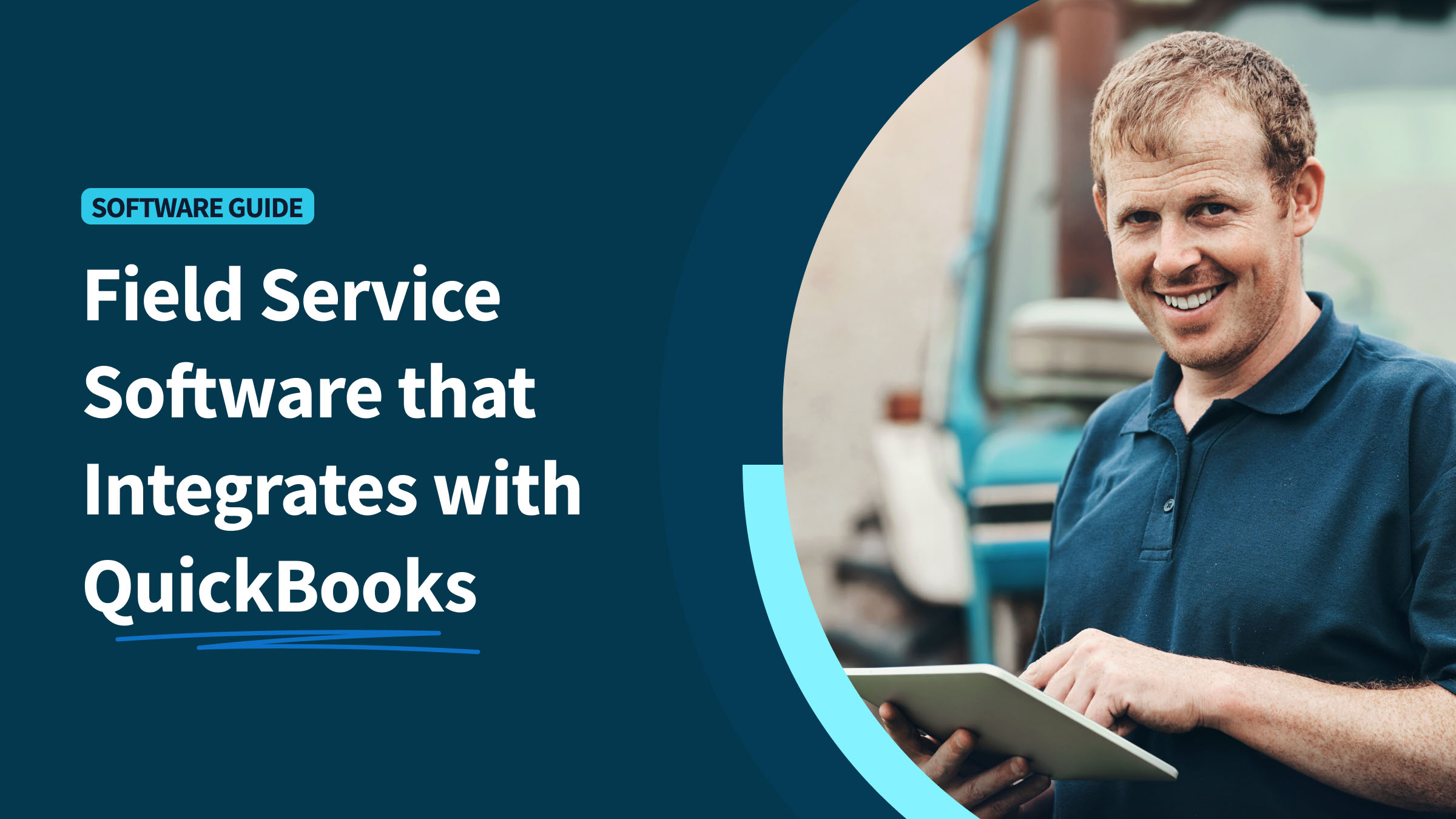Keeping your finances in order is crucial for any business, but figuring out how to do it takes work. Relying entirely on an accountant might make your life easier, but it will also be tough on your budget.
Alternatively, an accounting system like QuickBooks can support your financial operations for a fraction of the price, but to what extent can QuickBooks replace an accountant?
In this blog, you’ll explore when you need an accountant and when you can let your accounting software take over. The right software system can render you the services you need and might even be the better option, as it:
- Provides features that rival professional accounting services.
- Streamlines financial processes without human intervention.
- Can be a cost-effective alternative to hiring an accountant.
- Offers a comprehensive solution for small business financial management.
- Can handle financial data and analysis like an expert.
So… can QuickBooks replace an accountant entirely? Let’s find out!
What is QuickBooks?
QuickBooks is a popular accounting software that many businesses use to manage their finances. With QuickBooks, you can keep track of income, expenses, invoices, and more — all in one place.
It has the capability to perform accounting tasks such as:
- Payroll management.
- Regulatory compliance.
- Data accuracy and validation.
- Cash flow analysis.
- Maintaining audit trails.
That said, can QuickBooks replace an accountant with these tools?
Can QuickBooks replace an accountant?
The short answer to “Can QuickBooks replace an accountant?” is it depends.
QuickBooks is a game-changer for some businesses, but it’s not a one-size-fits-all solution. For example, you can’t use QuickBooks as a substitute for a certified accountant (CPA), especially for complex financial matters and tax planning.
Let’s take a closer look at when you can use QuickBooks to supplant an accountant.
When can QuickBooks be a suitable alternative to hiring an accountant?
Software can compete with the services an accountant offers, but can QuickBooks replace an accountant fully? It gets close in these two cases:
Small businesses with simple financial operations
QuickBooks might be all you need if your business has straightforward financial operations. For example, if you have a small construction firm with few expenses and clients, QuickBooks can handle your:
- Invoicing.
- Expense tracking.
- Financial reporting.
- Basic inventory management.
In this case, your accounting system lets you manage finances without a dedicated accountant. It also might reduce errors commonly made in manual accounting. Because it integrates advanced features that challenge traditional accounting roles, your business stays more productive and accurate. As a plus, this means the software may reduce the need for manual accounting oversight.
In other words, QuickBooks offers tools that mimic traditional accounting processes so you can focus your attention on bringing in clients and growing your business.
Its cloud-based accessibility also makes it a convenient option, since you can access it from anywhere with an internet connection.
Cost savings for small business owners
If you’re trying to grow your company, you know making smart investments and saving costs where you can boost your revenue.
One of the most significant advantages of using QuickBooks is the cost savings. Hiring an accountant or bookkeeper is expensive. In contrast, bookkeeping software is designed to be cost-effective, especially for growing businesses.
Despite being cheaper, QuickBooks simplifies complex accounting tasks with automation and offers insights and reports similar to those generated by accountants. It can support you in setting up your financial operations for success.
Accounting software systems outperform accountants in some ways, but a professional’s expertise is hard to surpass. So, even if you don’t need an accountant for your daily operations, consulting with one on some issues helps you avoid mistakes and keep your information in order. After all, there’s no way to eclipse human expertise and consultation needs.
Advantages of QuickBooks for businesses
Now that you know when QuickBooks can assume your accounting responsibilities, let’s explore how.
Automation of financial processes
Some accounting systems offset the need to hire someone to manage your finances because they can automate many tasks typically done by an accountant.
QuickBooks allows businesses to manage finances without a dedicated accountant, as some of its features emulate an in-house professional’s responsibilities. The software offers:
- Budgeting and forecasting tools.
- Accounts payable and receivable functionality.
- Customizable financial statements.
- Invoicing capabilities.
- Tax preparation features.
- Financial analysis tools.
- Bank account integration.
QuickBooks can also categorize expenses, reconcile bank transactions, and even remind you when bills are due.
Financial software automation lets you replicate the benefits of having accounting employees, which frees you up to focus on growing your business.
It also comes with other benefits, such as a recurrent security and data backup to avoid information loss and reduce duplicate documents.
Improved transparency and visibility in financials
QuickBooks gives you a clear view of everything you need to track, including your:
- Sales numbers.
- Purchase orders.
- Taxes.
- Vendor payments.
It generates reports that show you where your money is coming from and where it’s going so that you succeed in controlling your finances. This transparency helps you make informed decisions to improve your bottom line.
Streamlined data entry and accounting tasks
Manual data entry and paperwork cause mistakes in your accounting. QuickBooks simplifies these tasks to make it easier to keep accurate records. You can also connect your bank accounts and credit cards for real-time data import.
This way, you’ll overtake the companies in your field in providing positive experiences and become the top choice for prospective customers.
Access to professional tax advice and support
QuickBooks has dedicated individuals to advise you on managing your taxes. Their tax consultants displace the need to hire people as full-time accountants, since they consistently outdo themselves to bring value to your company.
While QuickBooks can’t replace a certified tax professional, its consultation services can. They help you organize your financial data for tax season, which makes it easier for you to submit accurate reports on time and match the quality of those submitted by accountants.
Ability to customize your financial reports
Every business has unique financial needs. QuickBooks lets you customize your financial statements to fit your specific requirements. The accounting software has you covered, whether you need:
- Detailed profit and loss statements.
- A visual cashflow chart.
- An overview of how each article is performing.
Increased efficiency in invoicing, billing, and payment processing
Invoicing can be a time-consuming task for small business owners. Luckily, QuickBooks makes it a breeze by automating the process. You can create professional invoices and set up recurring billing for your regular clients. It also offers multi-currency support so that you can grow your business internationally with the same ease.
Easier inventory tracking and management
If you deal with inventory, you can use QuickBooks’ tools to track and manage your stock. To avoid inventory shrinkage, you can:
- Monitor stock levels.
- Set reorder points.
- Generate reports.
Comprehensive real-time reports
QuickBooks provides you with real-time insights into your business’ financial health. You can access reports on:
- Cash flow.
- Profit and loss.
- Balance sheets — and more.
This data empowers you to maximize your resources.
Finding the right balance: Using QuickBooks in conjunction with an accountant
So, can QuickBooks replace an accountant? In some cases, it can. We’ve talked about the advantages of QuickBooks and how it’s a valuable tool for small businesses. But it’s not an all-or-nothing decision.
QuickBooks bridges the gap between software and professional services, so if there’s something you can’t do through QuickBooks, your accountant can help, and vice versa. Here are some tips to find the perfect balance.
Collaborate effectively
Work closely with your accountant to ensure that they have access to your QuickBooks data. This collaboration lets them provide timely advice and insights.
Regular check-ins
Schedule regular check-ins with your accountant. Discuss your business’:
- Financial health.
- Goals.
- Upcoming challenges.
These meetings help you stay on track and make informed decisions.
Tax season support
When tax season begins, your accountant can use your QuickBooks data to prepare accurate tax returns. This collaborative effort ensures you take advantage of all available deductions and credits while complying with tax regulations.
Strategic planning
Your accountant can help you create a long-term financial strategy. They can:
- Analyze your financial reports.
- Identify trends.
- Recommend ways to improve profitability and cash flow.
So, can QuickBooks replace an accountant? It can boost your financial operations and eliminate the need for a full-time accountant. However, it’s best to use a professional’s expertise along with QuickBooks.
Extend the power of QuickBooks with Method — #1 lead-to-cash automation
Method CRM simplifies your entire sales process, from capturing leads to closing deals and getting paid. With Method, you can register leads and customers separately, and track each transaction to keep your records in order.
So, the question isn’t “Can QuickBooks replace an accountant?” Instead, it’s, “How can I use QuickBooks to its fullest?” The software can automate many more processes than accounting when you integrate it with third-party applications, such as Method.
So, using QuickBooks might not fully eliminate your need for an accountant, but it can support your operations and boost your revenue in many other ways.
Frequently asked questions
Do accountants use Excel or QuickBooks?
Accountants use various tools, and it often depends on the specific needs of their clients. While some accountants might use Excel for particular tasks, many opt for QuickBooks because of its efficiency and comprehensive features.
As a designated accounting software, QuickBooks is the more robust option. It:
- Simplifies financial management.
- Reduces the risk of errors.
- Helps with more things than bookkeeping.
Do CPA firms use QuickBooks?
Many CPA (certified public accountant) firms use QuickBooks for their clients. It helps accountants manage financial data effectively and handle several clients’ information at a time. CPA firms also use QuickBooks to generate insights and collaborate with clients.
Is QuickBooks as good as an accountant?
QuickBooks is a powerful tool, but it’s not a replacement for a qualified accountant. It’s essential to understand that QuickBooks can:
- Handle many routine financial tasks.
- Automate processes.
- Provide real-time insights.
However, an accountant brings:
- Special expertise.
- Strategic financial planning.
- A deep understanding of tax laws.
It’s often best to use QuickBooks with an accountant for optimal results.
Meet Method, your next employee of the month. Start your free trial.
Image credit: Steve Buissinne via Pixabay






